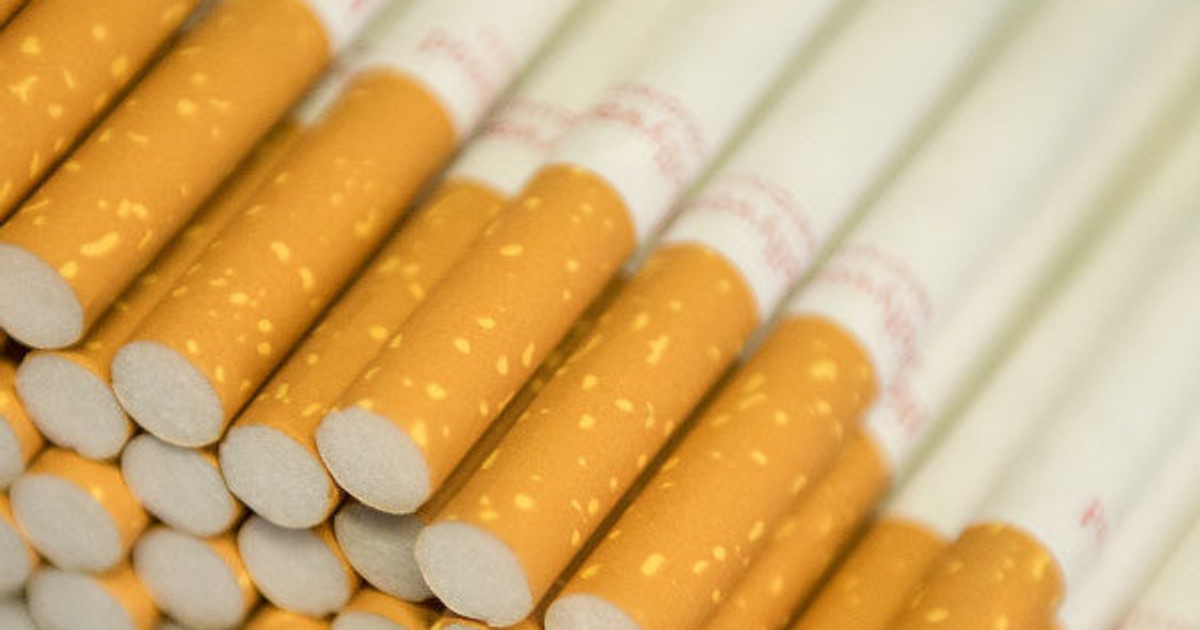News
Tobacco Imports in Kenya Face Total Ban as Government Fights Addiction and Corruption

Kenya has taken a bold step in the war against tobacco use. On July 30, Health Cabinet Secretary Aden Duale announced a total ban on tobacco imports, sending a clear message that the government is serious about protecting public health.
This decision follows growing concern over the rise in tobacco-related illnesses and the flood of illegal products in the market.
The ban targets not only cigarettes but also other nicotine-based products like shisha, which have been slipping into Kenya despite strict laws.

Kenya’s ban on tobacco imports is a major shift in public health policy. With strong political support, public education, and a renewed crackdown on corruption, the government is hoping to reduce tobacco use and protect future generations. [Photo: Courtesy]
Tobacco Imports Under Fire as Kenya Declares Zero Tolerance
The move to ban tobacco imports is not sudden. For years, the Ministry of Health has been fighting an uphill battle against an industry that thrives on addiction, corruption, and loopholes in enforcement.
According to CS Aden Duale, the goal is to reduce access to harmful products that have put a strain on the country’s healthcare system and destroyed countless lives.
“Tobacco products have been flooding our markets, frustrating government efforts to curb their misuse. This is why we decided to ban imports,” Duale told the National Assembly Committee on Delegated Legislation.
He said the ban would apply to all forms of tobacco-related products entering Kenya, especially from countries like China, where many shisha and e-cigarette shipments originate. The government believes this step will dry up supply lines used by smugglers and reduce access to cheap, addictive products.
Duale admitted the fight won’t be easy. “The weakest link in our crackdown, especially on products like shisha, remains graft within enforcement agencies,” he noted.
Corrupt border officials and local law enforcers have helped create a thriving black market. The government is now moving to fix this by tightening controls, suspending licences, and using stronger messaging to warn Kenyans about the dangers of tobacco use.
In May, the ministry suspended all active licences for companies dealing in tobacco and nicotine products. These companies were given a 21-day deadline to reapply, but many are now unlikely to qualify under the new rules.
Youth at the Center of the Crisis
The government’s decision also stems from a deeper concern—young Kenyans are becoming the new face of addiction.
“What’s even more worrying is the growing vulnerability of our youth, who are being lured into addiction through cheap, accessible products. We must act decisively,” said Duale.
Easy access to flavored vapes, shisha pipes, and low-cost cigarettes has turned tobacco into a fashionable habit among young people. In towns and cities, it’s not uncommon to find teenagers smoking in groups or even vaping in schools. The CS warned that without bold action, a generation could be lost to addiction.
To fight back, the ministry is rolling out new graphic health warnings for all tobacco products. These will include shocking images of cancer, heart disease, and other life-threatening effects. The goal is to make the consequences of smoking impossible to ignore.
Schools and community leaders are also being asked to help spread anti-tobacco messages, with support from the National Authority for the Campaign Against Alcohol and Drug Abuse (NACADA).
Political Support and Industry Pushback
While some industry players have condemned the ban, lawmakers on the National Assembly committee strongly backed the Health Ministry’s move.
“We recognize that players in the tobacco industry may oppose these stringent measures due to the potential financial losses. But for us, the health of Kenyans comes first. The ministry has our full backing,” said committee chair Samuel Chepkong’a.
The MPs urged the ministry to work closely with county governments to ensure full enforcement across Kenya. They also called for more funding and training for local officers to handle enforcement fairly and professionally.
But not everyone is cheering. Importers, distributors, and retailers fear massive losses. Some argue that a ban will drive the business underground, creating a stronger black market. However, the government insists that the ban is just one part of a wider effort, which includes education, treatment programs, and strong enforcement.
Kenya Insights allows guest blogging, if you want to be published on Kenya’s most authoritative and accurate blog, have an expose, news TIPS, story angles, human interest stories, drop us an email on [email protected] or via Telegram
-

 Grapevine2 weeks ago
Grapevine2 weeks agoRussian Man’s Secret Sex Recordings Ignite Fury as Questions Mount Over Consent and Easy Pick-Ups in Nairobi
-

 News1 week ago
News1 week agoTHE FIRM IN THE DOCK: How Kaplan and Stratton Became the Most Scrutinised Law Firm in Kenya
-

 Investigations1 week ago
Investigations1 week agoMulti-Million Dollar Fraud: Three Kenyans Face US Extradition in Massive Cybercrime Conspiracy
-

 Economy1 week ago
Economy1 week agoIran Demands Arrest, Prosecution Of Kenya’s Cup of Joe Director Director Over Sh2.6 Billion Tea Fraud
-

 Business1 week ago
Business1 week agoA Farm in Kenya’s Rift Valley Ignites a National Reckoning With Israeli Investment
-

 Africa2 weeks ago
Africa2 weeks agoFBI Investigates Congresswoman Ilhan Omar’s Husband’s Sh3.8 Billion Businesses in Kenya, Somalia and Dubai
-

 Grapevine5 days ago
Grapevine5 days agoA UN Director Based in Nairobi Was Deep in an Intimate Friendship With Epstein — He Even Sent Her a Sex Toy
-

 News2 weeks ago
News2 weeks agoTragedy As City Hall Hands Corrupt Ghanaian Firm Multimillion Garbage Collection Tender
















